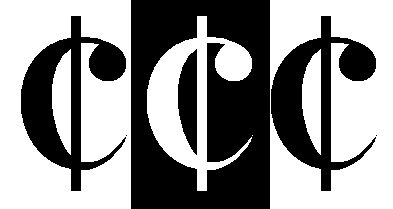The second of the Chichester Chamber Concerts in the 2014–15 Season was given on Thursday 6th November in the Assembly Room by the highly accomplished Smetana Piano Trio. Despite their programme consisting of three trios all in a minor key, this proved to be a joyous and most enjoyable occasion.
The first item on the programme was the Piano Trio in C minor Op. 2 by Josef Suk. This is a student work, written in 1889 when Suk, the son of a village organist, was just 16 or 17 and a student at the Prague Conservatory. Following revisions suggested by Suk’s composition teacher, Karel Stecker, it was performed at a student concert where it impressed the great Czech composer Anton Dvořák who was in the audience. Further revision followed, suggested by Dvořák, and the work was published in its final form in 1891. It opens with powerful descending piano chords vying with a legato melody in the strings. Initial concerns that violinist Jiři Vodička’s delicate Guadagnini instrument would be overwhelmed by the piano of Jitka Čechová and the cello of Jan Páleníček were quickly dispelled when the second subject appeared, introduced by the cello. Both the second and third movements feature dance rhythms before the work ends with an energetic march. This was a persuasive performance played with great delicacy and charm.
It was followed by a performance of the only non–Czech work on the programme – the mighty Piano Trio in A minor by Maurice Ravel – one of the truly great pieces written for this combination of instruments. Again, the piano leads the way, dictating the character of the first movement, and is followed by the stringed instruments in widely spaced octaves (a Ravel trademark). This is sublime music that received a suitably dreamlike treatment from the Smetana Trio. The following two movements marked Pantoum (a reference to a Mayan poetic form used by Victor Hugo) and Passacaille were also marked by exquisite playing. The theme of the spirited final movement, marked Animé, is introduced by the piano through a delicate haze of string sound in a masterly blend of the percussive keyboard instrument and the legato singing of the strings. The Ravel trio calls for great virtuosity which was duly supplied by the Smetana Trio.
The final work was the G minor piano trio Op.15 by Bedřich Smetana, regarded in his homeland as the father of Czech music. Born in 1824, Smetana gave his first performance as a pianist at the age of six. Despite discouragement from his father, Smetana embarked on a musical career but took some time to become established, having his first real successes in Gothenburg. His personal life was marked by tragedy. In July 1854 his second daughter Gabriele died of tuberculosis and a year later his eldest daughter, Bedřiška, who was already showing signs of musical precocity at the age of four, died of scarlet fever. It was after her death that Smetana started the composition of this trio; a grief filled work relieved by happy, energetic interludes in which the composer seems to be recalling the joy his daughter gave him. It is a work that calls for forceful, intense playing as well as great poignancy, both fully demonstrated by the Smetana Trio in this empathetic performance.
A lively encore by the modern Czech composer Roman Haas, his Postludium and Czardas, rounded off a splendid evening of music making of the highest quality and sent the audience buzzing into the night.
